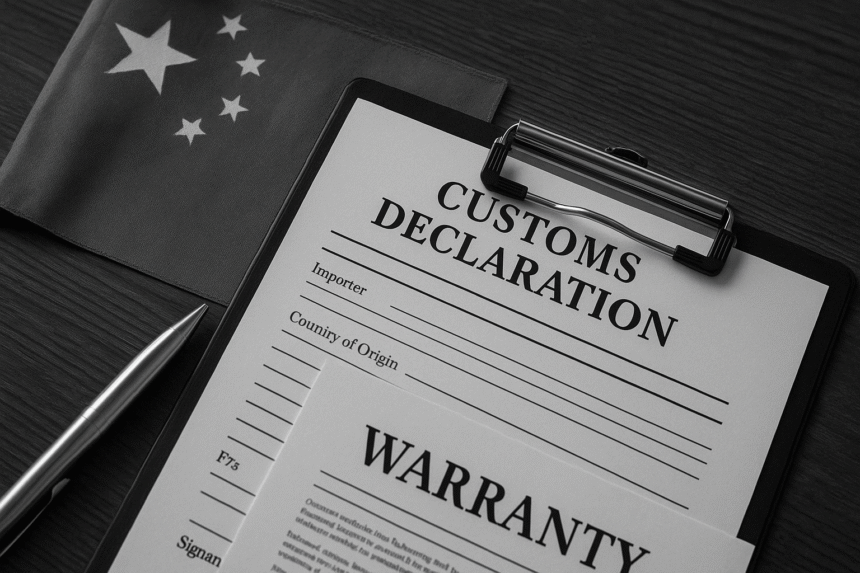Chinese Import Requirements and Tariffs
Once the goods arrive in China, import compliance must be satisfied. China’s import regime includes both technical and administrative requirements.
Importer Responsibilities in China:
- Importer Registration: The Chinese buyer must be registered with the Ministry of Commerce (MOFCOM).
- Entry-Exit Inspection and Quarantine (CIQ): Raw minerals are subject to inspection for quality and safety.
- Customs Clearance: Requires the buyer to file import declarations and pay duties and VAT.
Applicable Duties:
- Import duties range from 0% to 6%, depending on the mineral
- VAT is typically 13%
- Additional fees may apply depending on the trade agreement between the countries involved
Understanding these rules helps you draft better Incoterms and cost-sharing clauses in your contracts.
Drafting Effective Bulk Mineral Sales Contracts
Bulk raw material sales to China are typically governed by long-term offtake agreements or individual sales contracts. These contracts must be watertight to prevent disputes.
Must-Have Clauses:
- Quantity and Quality Terms:
- Use internationally accepted testing standards (e.g., SGS, Bureau Veritas)
- Include tolerance levels for impurities
- Delivery Terms (Incoterms):
- CIF (Cost, Insurance, Freight) is common, but EXW or FOB may apply
- Title Transfer and Risk:
- Specify when ownership and risk pass from seller to buyer (usually at port loading or unloading)
- Force Majeure:
- Account for port delays, customs holds, or shipping disruptions
- Dispute Resolution:
- Arbitration in Hong Kong, Singapore, or under CIETAC (China International Economic and Trade Arbitration Commission)
A well-drafted contract reduces uncertainty and legal exposure on both sides.
Mitigating Payment and Currency Risk
Getting paid on time is one of the biggest concerns in cross-border mineral trade. Common methods include:
Safe Payment Methods:
- Letter of Credit (LC): Issued by a Chinese bank to guarantee payment after documents are verified
- Telegraphic Transfer (TT): Faster, but riskier—only use with trusted buyers
- Advance Payments with Balance on Delivery: Useful for first-time buyers with small volumes
To reduce risk:
- Request a confirmed LC through a global bank
- Use escrow services for new buyers
- Monitor exchange rate fluctuations if invoicing in USD or RMB
Contracts should also specify penalties for late payment and define the method of remittance.
Dispute Resolution in Cross-Border Mineral Trade
Legal disputes in cross-border deals can be complex and expensive. That’s why it’s essential to plan for resolution mechanisms in the contract.
Best Practices:
- Choose arbitration over litigation: Faster and more enforceable in international contexts
- Select a neutral seat of arbitration: Hong Kong, Singapore, or the UAE are preferred for Chinese deals
- Use standard arbitration rules: CIETAC, ICC, or UNCITRAL
- Clarify governing law: English law or Chinese law depending on leverage and jurisdictional comfort
Pre-agreed procedures avoid surprises and speed up resolution in case of dispute.
Conclusion
Exporting raw minerals to China is full of opportunity, but also legal complexity. By understanding the legal frameworks for exporting raw minerals to China, you can protect your interests, build stronger relationships with buyers, and ensure that every deal runs smoothly.
From export licenses and shipping documents to sales contracts, import compliance, and dispute resolution, the right legal structure is your foundation for sustainable trade.
Always seek local legal advice in both the exporting country and China to align your compliance with national laws. The cost of preparation is far less than the cost of a dispute.



Leave a Reply